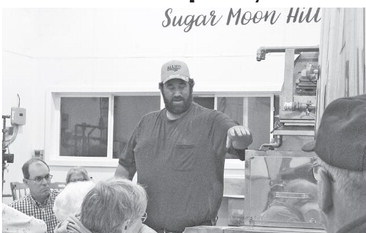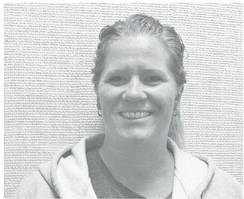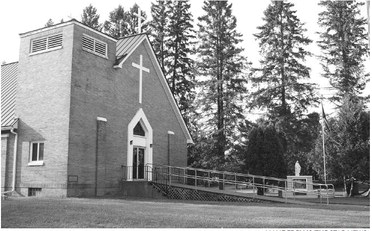Taylor County Farm Bureau advances rural policy issues


Bonding of public roads drew discussion at the 2025 annual meeting of the Taylor County Farm Bureau, held Sept. 9 at Sugar Moon Hills Maple Syrup in the town of Medford.
As part of the meeting, members discussed and voted on a dozen resolutions reflecting policy statements from the organization developed at the local level and which will be sent to the state organization to be used for lobbying purposes.
The resolutions reflect issues brought up by farmers, loggers and other rural residents. The issue of bonding on public roads was prompted by loggers, particularly those in northern counties who are being pressured into placing bonds on public roads taking responsibility for damage to the road.
Many municipalities have provisions in place so that if a user damages the road through, for example, transporting an overweight load, the user can be held responsible for the cost of the repairs to the roads.
Forcing road users to take out a bond, involves legal and financial commitments and carries the risk of having the bond forfeited. The concern is that forcing loggers and eventually farmers to take out bonds to use public roads ties up resources and puts them at risk when other road users are the ones doing the damage.
Taylor County Farm Bureau president Rob Klussendorf said the resolution opposing bonding for public roads came out of a logging meeting held in the area earlier this year. At that meeting, loggers said they were being held accountable to roads when ATV and UTV traffic during weekends were the ones actually causing the road damage.
Local Farm Bureau members expressed concern that bonding on public roads could become a slippery slope impacting farmers accessing their fields or hauling manure.
In another forestry-related resolutions, Taylor County Farm Bureau members called for increased accountability for funds allocated for forest road maintenance.
Other resolutions include:
• Supporting requirements that the permitting of solar or wind facilities require testing for stray voltage by an independent expert and include measurements of very low frequency and capacitance and use a 125 Ohm resistor.
• Supporting UW-Madison Extension Agricultural Educators to maintain a level of one educator for every one to two counties.
• Support SNAP education
• Oppose ballot initiatives
• Support promotional programs that inform the consumers regarding modern agricultural practices and how the food chain works.
At the federal level the following policy resolutions were approved:
• Opposing any government or foreign adversary from purchasing, directly or indirectly, any farmland easements to take the land out of agricultural production.
• Opposing any foreign adversary owning, renting, or leasing agricultural land within US land and its territories.
• Supporting the addition of mozzarella cheese to the Dairy Product Mandatory Price Reporting Program.
• Support including all milk in the orders being pooled.
• Support a call to reform the milk processing support program to include other factors in modern farming processes and to be updated to provide an adequate safety net for modern dairy farmers.
In addition to voting on the resolutions and conducting business of the organization, members also heard from Chris Knoll, an owner of Sugar Moon Hills Maple Syrup.
Sugar Moons Hills produced 163 barrels of maple syrup in 2025. Knoll explained the sap came from about 30,000 taps on trees owned by the Knolls and others. He said their goal is to get to about 40,000 taps.
About 90% of their maple syrup is sold to wholesalers who purchase and bottle syrup and sell it under a variety of names. He said they keep some each year to bottle and sell under the Sugar Moon Hills label at area retailers including County Market.
He said their operation is capable of cooking one barrel of sap per hour and that at one 72 hour stretch this spring they produced 36 barrels of sap. He said at times, the reverse osmosis system was only being shut down long enough to filter and clean it. Reverse osmosis systems remove about 80% of the water from the sap before it is sent to be cooked and have made a huge difference in syrup production in Wisconsin versus traditional methods of boiling the sap to remove the water from it.
Members also received a report from Daniel Mark, the CEO of Rural Mutual Insurance Company. He reported that while Rural Mutual remains an A+ Superior rated company, the insurance world in general is facing challenges. He noted that the two largest claim events in the company’s history occurred within the same five-month span this year.


